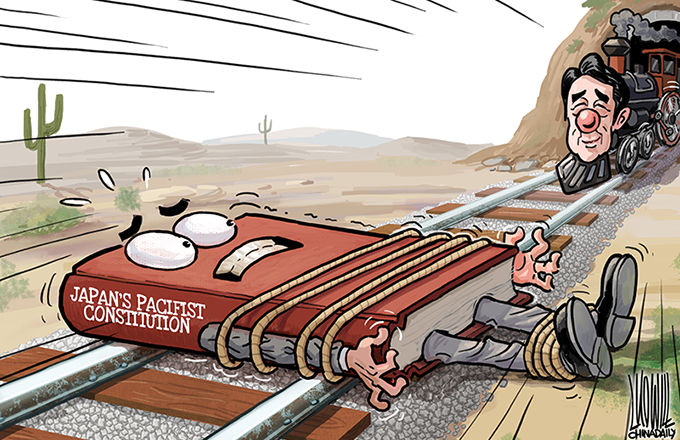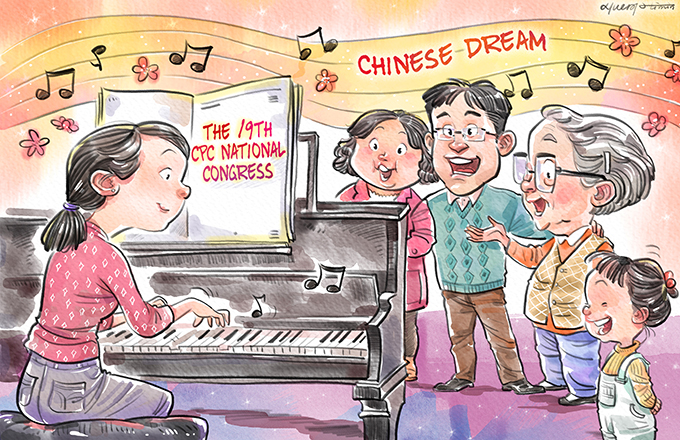Improving crisis management
Second, China must make efforts to explore and build up a new type of big-power relationship, properly handle territorial disputes and those over maritime rights and interests, and actively engage in security cooperation in non-traditional fields and of the global public domains of space, cyberspace and ocean shipping lanes. These are closely linked to each other, and they will produce huge positive spillovers if well handled.
China's development is now at a critical stage. Strong measures must be taken to break the historical trend of a rising power causing conflicts. Among China's big-power relationships, the one with the United States is the most important. The priority target should be to create a relationship in which the two countries focus on cooperation and coordination and effectively manage and control differences.
However, the current imperative is to resolve the Sino-Japanese crisis over the Diaoyu Islands and to stabilize and improve relations between China and Japan. In the process, safeguarding sovereignty must be closely linked to maintaining the overall situation in both countries and regional stability. Integrating relations with Japan into the overall effort to create a new type of big-power relationship will add strategic insights to Chinese policy toward Japan.
Territorial disputes and disputes over maritime rights and interests are relevant not only to big-power relations but also to relations with surrounding and developing countries. Proper settlement of disputes at an early date will help remove one major source of the fallacy that China is a threat. In this connection, China should follow the basic principles of settling disputes through peaceful dialogue, not firing the first shot, and shelving disputes and engaging in common development.
In the past decades, China has already settled the majority of its land border disputes through peaceful negotiation, mutual understanding and mutual accommodation. It must be firm in the belief that with further progress in political and economic relations, as well as regional multilateral cooperation, these basic principles will also in the end guide China to proper solutions of its maritime disputes with its neighbors.
Third, in the face of increasing challenges, China must build up its crisis management mechanism. Since the end of the Cold War, China has not engaged in any external military conflict or war. However, it has experienced security crises again and again that have had huge impact both at home and internationally.
Looking into the future, China will remain a country with territorial disputes and disputes over maritime rights and interests with multiple countries, a country confronted with the threat of secessionist forces, a country whose rise has alarmed its neighbors and Western powers such as the US, and a country that is increasingly involved in international crisis management and undertakes greater international responsibilities.
Whether the leadership has strong crisis management capabilities will have a bearing on the overall situation. China must strengthen its ability to prevent, prepare for, manage and control crises. Crisis management mechanisms, including its own, bilateral and multilateral mechanisms, must be further strengthened and the basic principles and policies of its crisis management must be further developed and improved. Crisis management should become an important tool for safeguarding China's national interests and effectively preventing military conflicts, thus guaranteeing the peaceful rise of China.
The author is director of research at the China Foundation for International Strategic Studies. www.chinausfocus.com





















